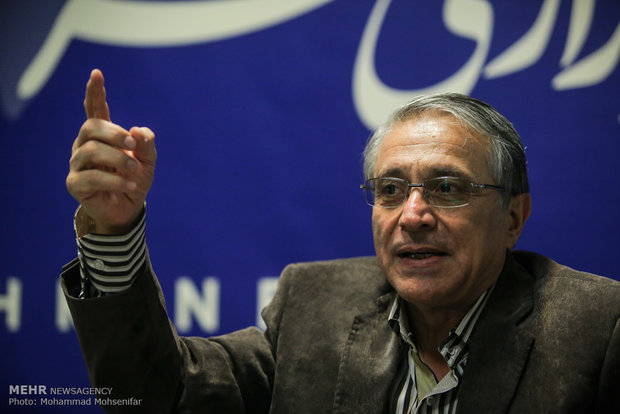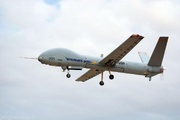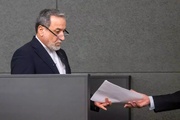Mehr News Political Service asked Iran’s former ambassador to Moscow in 1980s in a second interview within last 3 months, to talk about important foreign policy issues and the latest developments in the region. Mr. Nasser Nowbari believed that Mr. Zarif’s rather beleaguered reaction to Trump election to presidency in the US would be seen as a suboptimal response, tailoring any foreign policy toward the US to JCPOA, violation of which would be an anathema to the proponents at home and to Mr. Zarif and his entourage as well; “he has largely been a minister of JCPOA, missing diverse issues in the Middle East on which the basis of broad maneuverings would be lain; however, the response to president-elect was fraught with fears and did not see clearly other possibilities of the situation where Trump’s threats would be well worked to opportunities.”
How would you see the future of the JCPOA and its possible outcomes to Iran’s economy in upcoming months?
The diplomatic machinery should adapt to new conditions; now they are in a terra incognita where a change in strategy proves inevitable actually to exert some influence on international new order; it should be noted that Trump focuses on economy, and the foreign policy should be directed in a path to hit common views with Trump administration. His remarks so far on Syrian crisis are good omens, since he would work with Iran in more amicable terms than Obama and possible Hillary Clinton administration. Trump’s criticism that Obama and his Secretary of State Hillary Clinton funded extremists in Syria by American tax-payer money, and believes an ISIL-ruled Syria would be still more dangerous terrain than when ruled by Assad. He explicitly sends signs that he would work with Russia to come to a settlement in Syrian battleground; this makes him, willy-nilly, a player friendly to Iran, a fact which should not be gone unnoticed by foreign policy machinery; a little change of strategies would rule out the differences and bolster common positions with Trump.
Would Trump administration ignore JCPOA in the future?
Trump would claim that he and his administration had not hit the accord and thus evade from responsibilities; an error of judgement in Rouhani’s government is that they had already acted according to JCPAO without getting strong assurances from the other parties to JCPOA that they will also follow the suit; now they had postponed implementing the deal well up to the time Trump assumes power in the White House; the real problem is in our foreign policy. I believe Mr. Rouhani should explain to the public that the government had been in some part of the path off the course and that it had worked to review the path with objective to prevent further damage.
Mr. Rouhani has only few months to rule the country and JCPOA; how would you interpret Iran-west cooperation on JCPOA implementation?
I think President Rouhani has the time to restore public trust on his administration through talking directly and honestly to nation to communicate the fact that it had been on the wrong track; only after that would the cabinet assume accurate arrangement according to the necessities of the situation. A trade-oriented mind like Trump’s would welcome tradeoff, to which Rouhani’s administration would respond, setting aside all fears of outbreak of war, in a time when Trump’s policy in the Middle East would be the nearest to Iran’s in unprecedented degree; Trump seeks to destroy ISIL and a possible Assad restoration to Syria; with such friendly terms, a change of strategy would prove inevitable.
You have said earlier in an interview that whenever Russia-US had a détente, Tehran felt itself pushed on edges; how Tehran would respond should a US ruled by Trump comes to find Russia an alley in the Middle East, to keep at least a level of influence in the region and to secure its national interests?
Still I believe such détente precipitated Saddam Hussein’s invasion of Iran back in 1980 when Soviet Russia and the US had in a tacit agreement in abandoning Iran to its own means; whenever both hegemonies come to accord in international community, Tehran will suffer consequences and should face challenges; a Trump-Putin honeymoon is and should by no means be palatable to Tehran politicians, and should be viewed as a bad omen. Our problems with Russia will escalate whenever Moscow takes a more cooperative modus operandi than when it opts to more competitive one; however, Tehran should brace for dire situations through wise diplomacy and active engagement to secure its place; a weak diplomacy will hasten a downturn in Moscow’s favor of Tehran. We should abandon passive play in favor of finding ways to approach to Trump’s friendly gestures at least in Syria; a conflict of interests between Moscow and Washington will provide time for Tehran to act with calculation to translate them into opportunities.
During US election campaign, Arab states of the region provided lavish support for Hillary Clinton. Should we assume that a Clinton defeat will definitely be a cause for deterioration of the US relations with these countries? How Tehran should act or not act?
I believe Foreign Ministry’s response to Trump election was awkward, only communicating fears and deepest horrors of a worst scenario to the international community which would be precipitated with a Trump election. This would be seen an Achilles’ heel of Iran’s foreign policy and west would thus use the JCPOA accordingly to pressure Tehran; the new terra incognita where Mr. Zarif and the whole foreign policy generals are is where Trump is in conflict with Saudi rulers; however, a mindset stuck in the JCPOA and its existence, would miss these clues to the fact that the new zeitgeist is already on the horizon, and where new situations would be welcomed as net opportunities; Tehran would solve with Washington its only point of difference; in other issues of the Middle East, Trump would come closer in policies to Tehran more than any other country; Tehran should be open to any foreign policy change toward new conditions, otherwise it will only be a target of pressures and threats with a west turning indifferent to hostile over the time.
Would Trump revive a Bush-era aura in the Middle East?
Bush had largely seen the political terrain in a military-security worldview; however, Trump is more business-minded and seeks to maximize odds of Americans in economic terms; Iran would also be a source of attraction for such mentality; campaign promises would be a short-term histrionics and would fade away as the election dust clears; a good policy plan would see Trump more of an opportunity than threat, provided that JCPOA does not adumbrate the horizons of the Foreign Ministry.
SH/3822419


























Your Comment